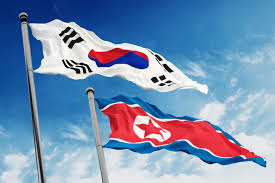
This Past Wednesday the Korean Embassy along with their Korean Ministry of Unification held a round table discussion to promote their new Unification Doctrine with the Philippines. The Doctrine was accepted very well with few questions. What is this doctrine you ask? The answer is below:
Introduction
On August 15, 1945, Korea was liberated from Japanese colonial rule, marking a pivotal moment in the nation’s history. However, the subsequent division of Korea into North and South in 1948 led to decades of conflict and ideological divergence. In light of this historical backdrop, the August 15 Unification Doctrine, articulated by President Yoon Suk Yeol during his commemorative address for the 79th National Liberation Day on August 15, 2024, emerges as a powerful vision for a united Korea. This doctrine is led by the Korean Ministry of Unification emphasizes freedom, peace, and prosperity, seeking to reconcile the two Korea’s and create a harmonious society that respects human rights and fosters economic growth.
Historical Context
The division of Korea has been a source of pain and suffering for its people. The Korean War (1950-1953) entrenched this division, leading to contrasting political systems: the authoritarian regime in the North and the democratic government in the South. Over the years, various attempts at reconciliation have been made, but lasting unity has remained elusive. President Yoon’s August 15 Unification Doctrine aims to address the root causes of this division by proposing a framework that prioritizes the well-being of all Koreans.
Historically, the National Community Unification Formula of 1994 served as an earlier blueprint for reconciliation. However, given the fast-changing geopolitical landscape and the evolving dynamics on the Korean Peninsula, this formula needed to be updated. The challenges presented by North Korea’s militarization and its recent suspension of inter-Korean relations—particularly after the Hanoi Summit in February 2019—underscore the necessity for a new approach. The North’s redefinition of inter-Korean relations as that of two hostile states has effectively undermined all previous initiatives to foster dialogue and cooperation.
Challenges to Unification
In stark contrast to the vision of a unified Korea, the North Korean regime has focused on developing nuclear and missile capabilities, often at the expense of its people. Resources that could be allocated to improving the living conditions of North Koreans are instead diverted to enhance military capabilities. This militarization not only exacerbates the humanitarian crisis within the North but also escalates military threats against South Korea.
The North’s leadership has consistently rejected the idea of a unified Korea based on the principles of democracy and human rights. Instead, the regime promotes an ideology that prioritizes its survival and the maintenance of power, further entrenching the divide between the two Korea’s. This rejection poses significant challenges to the August 15 Unification Doctrine, which seeks to create a peaceful coexistence based on mutual respect and shared prosperity.
Principles of the Doctrine
1. *Freedom*: Central to the August 15 Unification Doctrine is the commitment to human rights and individual freedoms. A united Korea must ensure all citizens enjoy the liberties guaranteed under international law. This doctrine includes freedom of expression, assembly, and religion, essential for fostering a democratic society. The doctrine aims to dismantle the oppressive systems that historically characterized North Korea by promoting these values.
2. *Peace*: Lasting peace on the Korean Peninsula is a cornerstone of the unification vision. The doctrine advocates for diplomatic engagement and dialogue to resolve conflicts and build trust between the North and South. The cessation of military provocations and the establishment of peaceful coexistence are paramount. Furthermore, the doctrine encourages international cooperation to support disarmament and promote regional stability.
3. *Prosperity*: Economic cooperation and development are vital for a united Korea. The August 15 Unification Doctrine emphasizes the need for joint economic initiatives that leverage the strengths of both Korea’s. South Korea’s technological advancements and economic prowess, combined with the North’s natural resources and labor force, can create a robust economy that benefits all citizens. Prosperity must be pursued not only for the sake of economic growth but also as a means to enhance the quality of life for every Korean.
Seven Action Plans for Unification
To operationalize the August 15 Unification Doctrine, President Yoon has outlined seven key action plans:
1. *Advancing Unification Education*: Promoting education about unification is vital for fostering a shared vision among future generations. In South Korea, educational initiatives will instill hope and a vision for a unified future. However, North Korea has enacted three laws to hinder this educational plan, creating significant challenges for North Koreans in accessing accurate information about unification. Overcoming these obstacles will require innovative strategies to engage North Korean citizens.
2. *Improving North Korean Human Rights*: Improving human rights conditions in North Korea is critical to the unification process. The South must advocate for the rights of North Korean citizens, working with international organizations to document and address human rights abuses. This initiative could raise awareness about the plight of North Koreans and provide support to defectors who seek safety and freedom.
3. *Providing Humanitarian Support for North Korean People*: Offering humanitarian assistance to North Korea is essential to alleviating its people’s suffering. The support could include food aid, medical supplies, and support for basic healthcare services. Humanitarian efforts should be carefully coordinated to reach those in need while building goodwill and trust between the two Korea’s.
4. *Increasing Access to Information*: Improving access to information for North Koreans is crucial for fostering a more informed citizenry. This could involve supporting initiatives that provide North Koreans access to news, educational resources, and independent media. By facilitating the flow of information, the South can empower North Koreans to engage in discussions about their future.
5. *Empowering North Korean Defectors in the Unification Process*: Empowering North Korean defectors to play an active role in the unification process is essential. Their experiences and insights can provide valuable perspectives on the realities of life in North Korea and help shape policies aimed at reconciliation. Support programs for defectors can facilitate their integration into South Korean society while encouraging involvement in initiatives promoting unification.
6. *Establishing an Inter-Korean Working Group*: Creating an inter-Korean working group can facilitate ongoing dialogue and cooperation between the two Korea’s. This group would focus on practical issues related to unification, such as economic collaboration, cultural exchanges, and humanitarian efforts. Regular meetings can build trust and foster a collaborative spirit.
7. *Securing International Support through a Global Korea Forum*: Establishing a global Korea forum can be instrumental in garnering broader support for the unification process. This forum would engage international stakeholders, including governments, NGOs, and civil society organizations, to collaborate on strategies for promoting peace and unity on the Korean Peninsula. South Korea can strengthen its position by securing international backing and creating a supportive environment for unification efforts.
The Korean Ministry of Unification and the doctrine serves as a guiding light, inspiring efforts toward reconciliation and collaboration. By prioritizing the well-being of all Koreans and fostering a spirit of unity, the vision of a prosperous, peaceful, and free Korea can transition from aspiration to reality. The journey toward unification may be long and challenging, but with commitment and cooperation, a brighter future awaits the Korean people.




